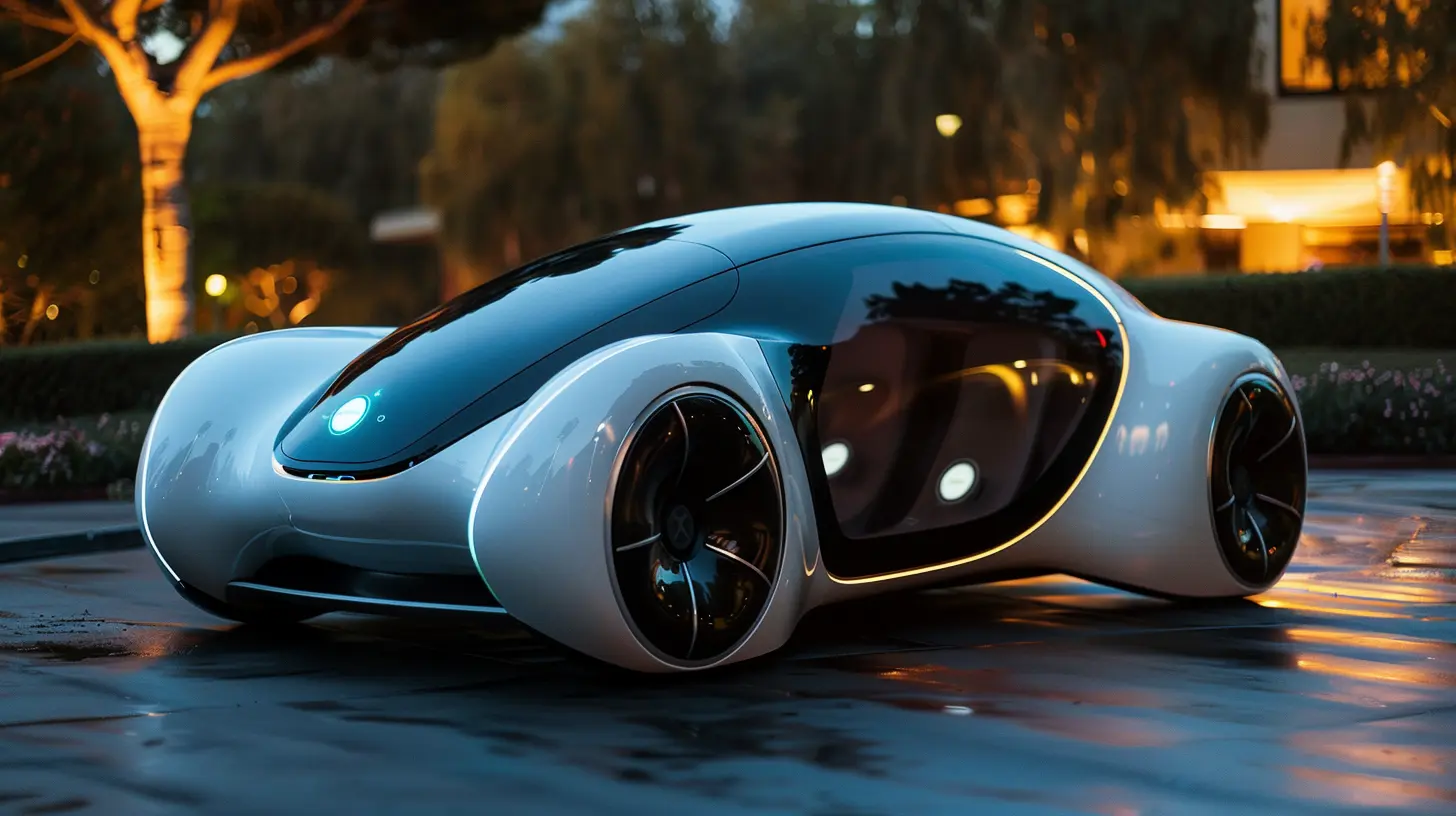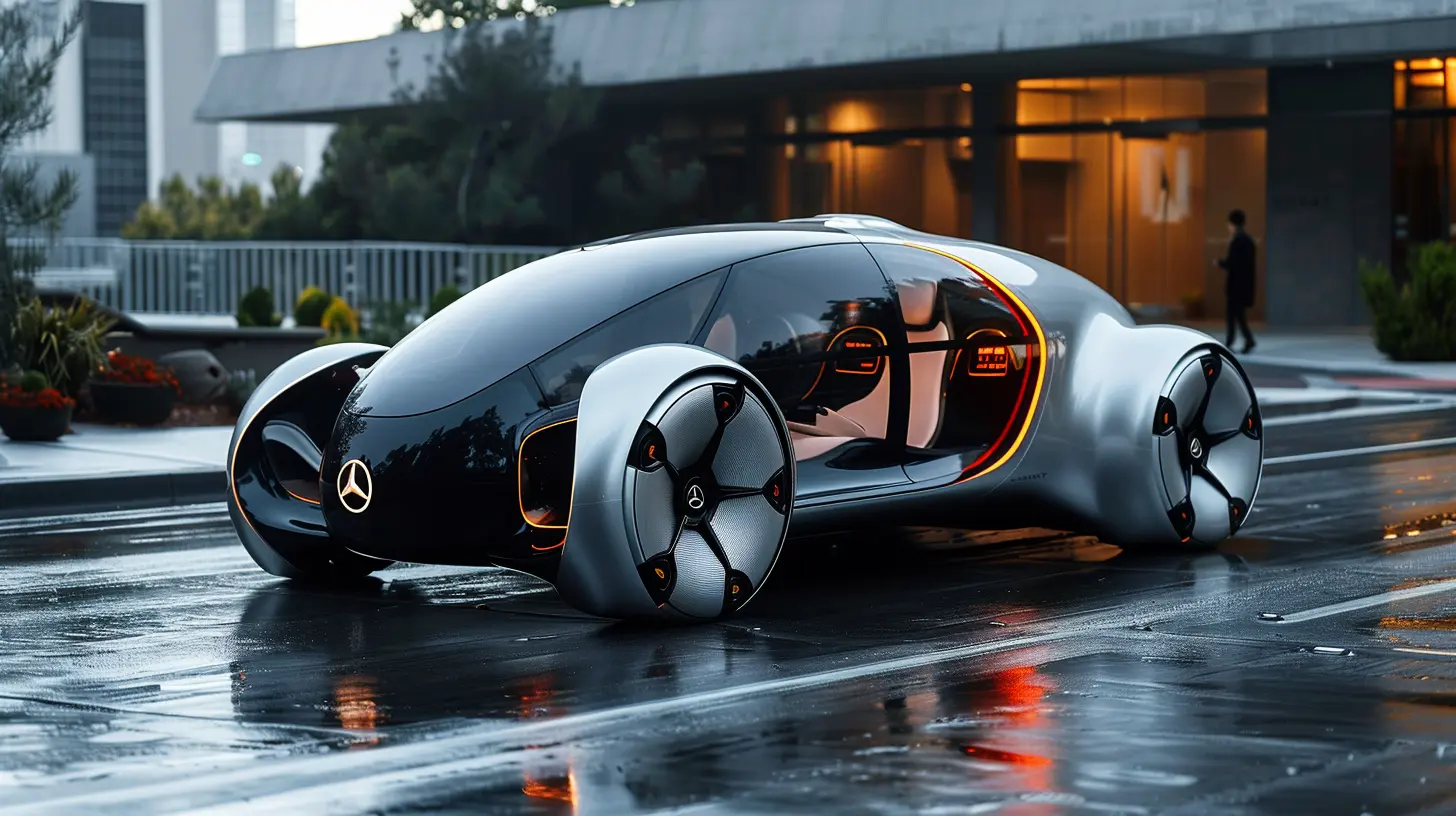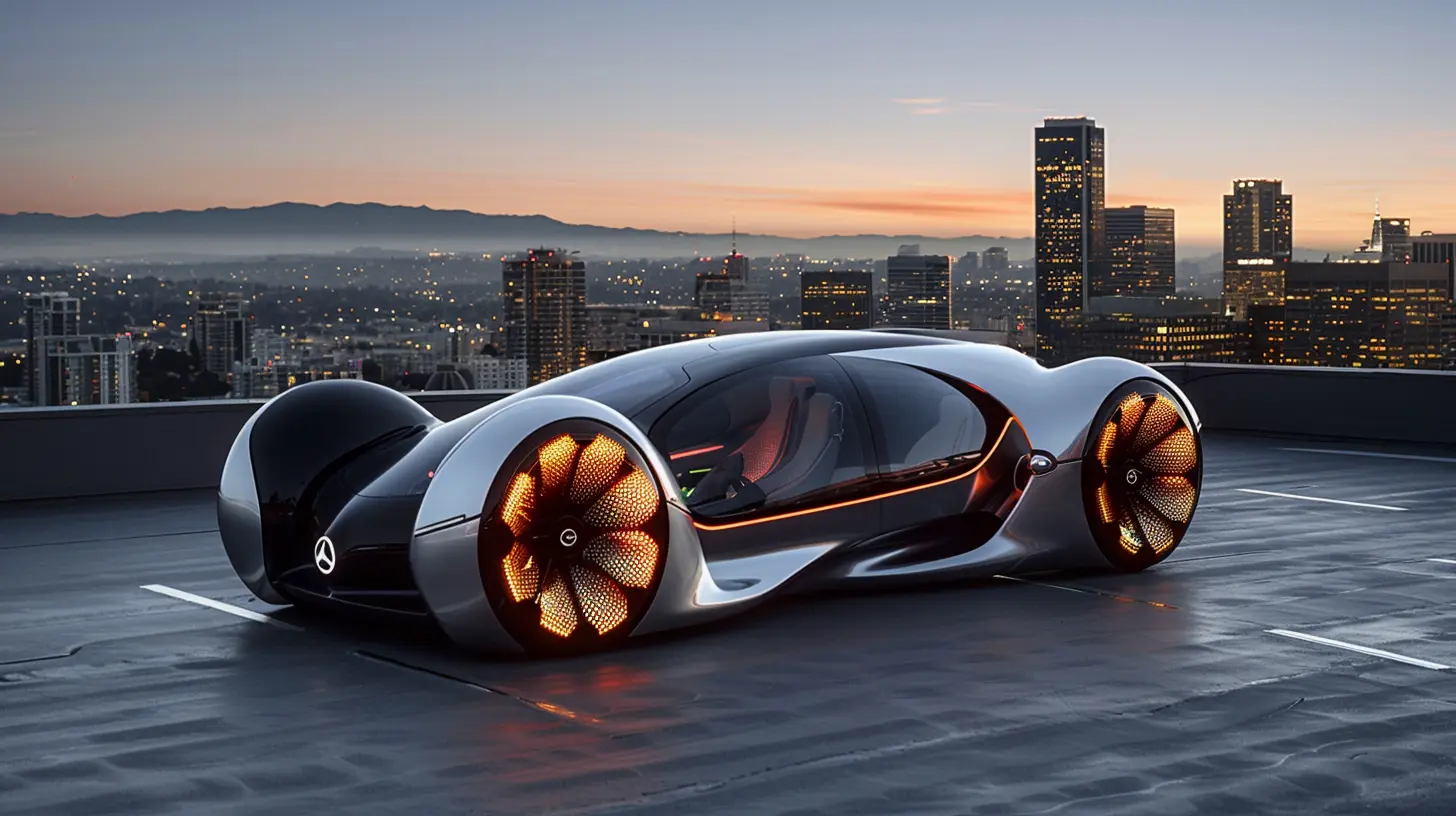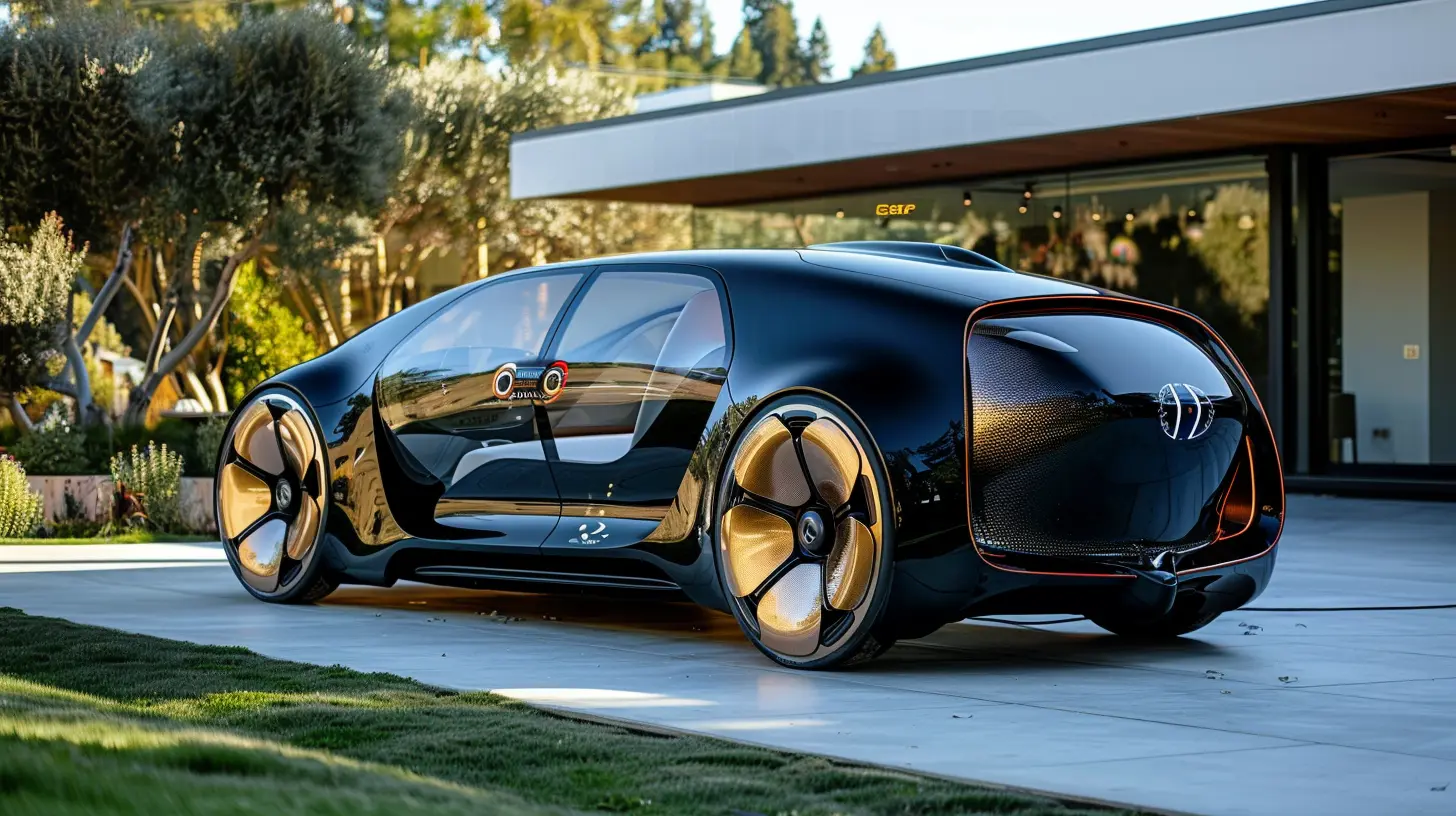How Autonomous Cars Are Shaping the Future of Car Ownership
11 June 2025
The world of transportation is undergoing a massive transformation, and it's not just about electric vehicles or ride-sharing apps anymore. Autonomous cars, once the stuff of sci-fi movies, are now rapidly becoming a reality. These self-driving cars are poised to redefine how we think about car ownership. But what exactly does that mean for us? How will autonomous cars change our relationship with vehicles? Let's dive into it.

What Are Autonomous Cars?
Before we jump into the future, let’s make sure we’re all on the same page. Autonomous cars, also known as self-driving cars, are vehicles equipped with advanced technology—think sensors, cameras, radar, and artificial intelligence—that allow them to navigate and operate without human input. You can sit back, relax, and let the car do the driving. Sounds like a dream, right?Now, while fully autonomous vehicles (Level 5) are still in development, many semi-autonomous features like lane-keeping assist, adaptive cruise control, and automatic parking already exist in modern cars. But we’re talking about full autonomy here, the kind where you can nap, watch a movie, or even get some work done while the car takes you from Point A to Point B.

The Traditional Model of Car Ownership
For decades, the traditional model of car ownership has been pretty straightforward. You buy a car, register it, maintain it, and drive it yourself. The car sits in your driveway or garage when it’s not in use, which, let’s be honest, is the majority of the time. Most car owners only use their vehicles for a couple of hours a day—if that.But the relationship between people and their cars has always been about more than just transportation. For many, owning a car is symbolic of freedom, independence, and control over one’s mobility. However, this “drive it yourself” model is on the verge of a major overhaul thanks to autonomous vehicles.

Car Ownership in an Autonomous World: Will You Even Need to Own a Car?
Here’s the big question: In a world filled with self-driving cars, will people even want or need to own their own vehicles?The Rise of Autonomous Ride-Sharing
One of the most talked-about changes that autonomous cars could bring is the rise of autonomous ride-sharing services. Picture this: you need to go somewhere, so you summon a self-driving car using an app, much like you would with Uber or Lyft today. The car arrives, takes you to your destination, and then moves on to the next rider. No human driver involved, no need for you to own the car.This model could be incredibly cost-effective. With no driver to pay, the cost of ride-sharing could plummet, making it much cheaper than owning a car. Plus, you wouldn’t have to deal with the headaches of car ownership—insurance, maintenance, parking, and depreciation. Sounds pretty appealing, right?
Shared Ownership Models
If the idea of not owning a car at all feels a little too extreme, consider shared ownership models. Imagine a group of people—maybe friends, neighbors, or even strangers—who co-own an autonomous vehicle. The car could be used by different people at different times, and it could even drive itself to the person who needs it.This concept isn't entirely new (think car-sharing programs like Zipcar), but autonomous vehicles could take it to the next level by eliminating the need for coordination. The car comes to you when you need it and leaves when you don’t. It’s like having access to a car without all the strings attached.
Subscription Services
Another possibility is that car manufacturers could offer subscription-based services. You pay a monthly fee, and in return, you have access to a fleet of autonomous vehicles. Different tiers of service could give you access to different types of cars depending on your needs—perhaps a luxury sedan for a night out or a roomy SUV for a family road trip.This model has already started to gain traction with subscription services from companies like Volvo and Porsche, but autonomous cars could expand the model even further. Imagine subscribing not just to a brand, but to a whole suite of autonomous cars that cater to your needs at any given moment.

The Impact on Car Manufacturers
The advent of autonomous vehicles doesn’t just change things for consumers—it also shakes up the car manufacturing industry in big ways.Shift from Selling Cars to Selling Services
If fewer people are buying cars because they’re relying on ride-sharing or subscription services, car manufacturers will need to rethink their business models. Instead of focusing on selling individual cars, they might shift to selling transportation services. Think about it: Ford or Tesla could become transportation companies rather than car manufacturers. They’d maintain fleets of autonomous vehicles and sell rides or subscriptions rather than cars.Redefining Car Design
Let’s not forget, autonomous cars don’t need to look or function like the cars we drive today. Without a need for a steering wheel, pedals, or even a driver’s seat, car interiors could be completely reimagined. They could become mobile offices, relaxation lounges, or entertainment hubs. The design possibilities are endless when the person inside the car doesn’t need to worry about driving.The Environmental Impact
Autonomous cars also have the potential to drastically reduce our environmental footprint. How? For starters, autonomous vehicles are expected to be more efficient drivers than humans. They can optimize routes, reduce idling, and avoid the stop-and-go driving that burns extra fuel.More importantly, if autonomous cars are widely shared, we may see fewer cars on the road overall. If you no longer need to own a car, the number of vehicles manufactured could decrease significantly, leading to less resource consumption and waste. Plus, many autonomous vehicles are expected to be electric, further reducing greenhouse gas emissions.
Challenges and Concerns
Of course, the rise of autonomous cars isn’t without its challenges. There are a number of hurdles to overcome before we see a world where self-driving cars dominate the roads.Safety and Trust
One of the biggest concerns is safety. While autonomous cars are designed to be safer than human drivers (no distractions, no fatigue, no road rage), they’re not foolproof. There have already been a few high-profile accidents involving autonomous vehicles. Building trust with the public will be a crucial challenge for the industry.Regulation and Legal Issues
Who’s responsible if an autonomous car gets into an accident? The passenger? The manufacturer? The software developer? These are questions that regulators are still grappling with. Autonomous cars will require entirely new sets of laws and regulations, and it could take years to sort out all the legal complexities.Job Displacement
We can’t talk about autonomous cars without addressing the potential for job displacement. Millions of people around the world make their living by driving—whether it’s taxi drivers, truck drivers, or delivery drivers. As autonomous vehicles become more prevalent, these jobs could be at risk. While new jobs will undoubtedly be created in fields like tech and maintenance, the transition could be disruptive for many workers.The Future of Car Ownership is Fluid
So, what does the future hold for car ownership? Well, it’s likely that we’ll see a mix of models. Some people will continue to own their cars, especially in rural areas where ride-sharing might not be as convenient. Others will fully embrace the idea of not owning a car at all, relying on autonomous ride-hailing services instead. For many, shared ownership or subscription services could offer the best of both worlds.One thing’s for sure: the traditional model of car ownership is evolving, and autonomous vehicles are at the forefront of that change. Whether you’re excited by the prospect of never having to drive again or feeling a little nostalgic for the control that comes with owning a car, the future of transportation is shaping up to be unlike anything we’ve ever seen.
In Conclusion
Autonomous cars are set to revolutionize the way we think about car ownership. From ride-sharing services to subscription models, the landscape is changing fast. While there are still challenges to overcome, the benefits—greater convenience, improved safety, and environmental sustainability—are hard to ignore.So, will you own your next car, or will it own itself?
all images in this post were generated using AI tools
Category:
Autonomous VehiclesAuthor:

Kira Sanders
Discussion
rate this article
3 comments
Milena Wilcox
This article highlights the transformative impact of autonomous cars on car ownership, emphasizing efficiency, reduced congestion, and the shift towards shared mobility. A fascinating glimpse into our transportation future!
June 16, 2025 at 3:35 AM

Kira Sanders
Thank you! I'm glad you found the article insightful. The future of transportation is indeed exciting!
Ariana McCarty
Autonomous cars could redefine ownership, emphasizing accessibility and shared mobility over individual ownership.
June 15, 2025 at 2:29 AM

Kira Sanders
Absolutely! Autonomous cars can facilitate a shift towards shared mobility, making transportation more accessible and reducing the need for individual ownership. This could lead to more efficient use of resources and less congestion.
Nancy Gomez
As autonomous cars redefine mobility, they challenge our notions of ownership, accessibility, and the very essence of personal freedom in transport.
June 12, 2025 at 2:29 AM

Kira Sanders
Indeed, autonomous cars revolutionize not just transportation but also our understanding of ownership and freedom, prompting us to rethink mobility’s role in our lives.


